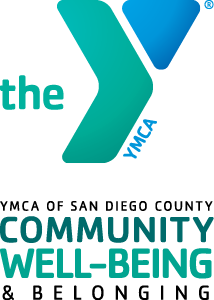An end to San Diego’s youth homelessness crisis is within reach, and the YMCA is proud to work toward a solution every day so homeless youth in particular can stabilize their basic needs, live in transitional housing, and become independent adults.
A homeless experience is traumatic for youth since shelters cater to adults instead of helping youth build the living skills and employment history to become fully self-reliant. Compared to adults, homeless youth are at a tipping point where safe shelter and access to tailored services when they need it can be the difference between prolonged homelessness and becoming a productive member of the community.
Of the 8,576 homeless individuals counted on single night in January 2018*, approximately 11% (928) were unaccompanied youth between the ages of 18-24. Numbers of this scale affect communities around the country, and in response, the State of California has allocated $500 million for one-time grants throughout the state. San Diego County is slated to receive $18.8 million, to be distributed by the Regional Taskforce on the Homeless (RTFH), the umbrella organization that coordinates resources for people experiencing homelessness.
To generate ideas for the best use of those funds, RTFH recently invited community members and organizations that serve homeless populations to a public input session. Based on our expertise, we urged the committee to make sure the application evaluation process and requirements for providing services incorporate an understanding of youth trauma, innovative strategies to address youth needs, and expertise in trauma-informed care, positive youth development, and evidence-informed practice.
Specific services in our recommendation include:
Prevention and Diversion
Family Support & Reunification: family conflict is a leading cause of youth homelessness, so low-barrier access to crisis support for families in conflict can reduce runaway behavior or family rejection. Services include short-term residential treatment with family therapy and family-finding services to help youth identify supportive relationships and networks in times of need instead of relying on expensive public assistance.
Outreach and drop-in services: open access to services that meet basic needs (e.g. hygiene, transportation, food) and case management and referrals will stabilize youth and help ensure that their homelessness experience is brief, rare and non-recurring.
Intervention
Diverse housing models: homeless youth are a diverse population, and their housing options should reflect and respond to those differences. Possible options include time-limited, non-time-limited, congregate or scattered-site, rental subsidy, or host home depending on a youth’s individual needs.
Service-rich environments: services must supplement housing to ensure youth are guided as they continue to develop and acquire skills to live independently that homeless adults already possess. Offerings include mental health support, case management, transition planning and education/employment coaching to support meaningful, living-wage employment.
While the State funding is short-term, our solutions are not. Our recommendations come from years of understanding the unique needs of homeless youth and providing evidence-based services that align with federal and industry practices that help youth realize their fullest potential as contributing members of society.
Are you interested in helping secure a bright future for homeless youth in our community? Contact Luisa Montes for more information.
* https://www.rtfhsd.org/wp-content/uploads/2017/06/2018-WPoint-in-Time-Count-Annual-Report.pdf


